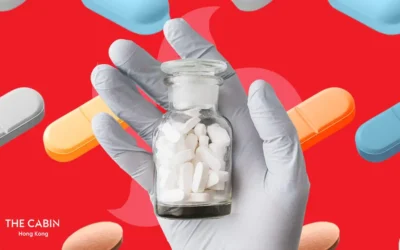Breaking free from any addiction can be a challenging process, especially in the early days. Here we look at five coping strategies you can try when recovery is getting you down.

Sharelines
Recovering from addiction can be an emotional rollercoaster. While the long-term benefits of breaking free from drugs and alcohol can’t be overstated, there will be some low points along the way.
Recovery can bring with it a number of emotional challenges. Loneliness, social anxiety, fear, guilt and other negative feelings can come to the fore, often suddenly and unexpectedly. Having the tools and support in place to help you deal with these emotions is key to a successful recovery.
Whether you’re going it alone or getting professional addiction treatment, putting your substance abuse disorders behind you can be a rejuvenating and rewarding experience. Here are some tips to help you flourish:
1. Go Easy on Yourself
Feelings of guilt and remorse are very common in the early recovery. In fact, almost everyone goes through them. Addictions of all kind are damaging both to you and those around you and most people will have past behaviour they’re not proud of. Instead of becoming overwhelmed, try to remember that this is now all behind you and you can now focus on rebuilding relationships and improving your life.
Don’t forget that you are going through a difficult and challenging process. Everyone makes mistakes, so don’t beat yourself up if your recovery is not going as quickly or as smoothly as you hoped. There will be setbacks, but if you learn from your mistakes and take every day as it comes, you will get there.
2. Celebrate Your Achievements
Focus on the positives! If you look for them, the recovery process is full of opportunities to celebrate and reward your accomplishments, both big and small. In truth, every day you stay clean is major achievement, whether it’s completing your first week or celebrating your five-year anniversary. These milestones are an important part of the building-block process that recovery is.
Also look out for the smaller, more nuanced improvements in your life. As you continue your journey, you’ll find your life improving in myriad ways, from better relationships with friends and family to outcomes in the workplace. Take some time to appreciate these moments. They’ll help give you the strength you need to get through the bad times.
3. Develop Healthy Habits
Most addictions are time-consuming in one way or another, and can often threaten to completely take over our lives. One of the greatest challenges many in recovery face is finding healthy activities to fill these new-found hours. Failing to do so can lead to boredom, anxiety and generally gives us an unwanted opportunity to focus on the more difficult aspects of the recovery process.
Finding positive outlets to fill these hours can give you something to do and take your mind of any cravings or negative feelings you might be experiencing. Practice some mindfulness meditation, go for a run, start a diary or do just about anything that clears your mind and makes you feel better.
Also, don’t forget your diet. Healthy eating promotes physical and psychological wellbeing and can help you maintain a positive view on life. Above all, try to begin each and every day with a positive outlook. See it as an opportunity to take another step towards recovery, not another day to get through. Positive thinking is one of the healthiest habits you can have.
4. Know Your Triggers
Recovery from addiction is a complex and individual process. Identifying and understanding the triggers and situations that make you feel down and put you at risk of relapse can be difficult, but is an essential part of a successful recovery. When you do feel bummed out, ask yourself why you’re feeling this way and what caused it. For example, perhaps you feel anxious when you’re exposed to places or people you associate with your addiction. If so, it take the necessary measures to avoid them. Professional addiction treatment can provide you with invaluable support, helping you to pinpoint the exact source of negative emotions and providing you with the necessary tools to deal with them.
5. Ask for Help
There’s a good possibility that at some point your reserves of inner strength will get tapped out and you’ll need some support. Very often, a chat with a spouse or friend may be all you need to help you regain perspective and strengthen your resolve.
That said, don’t shy away from the support available outside your immediate circle. Addiction recovery groups, sponsors and professional counsellors are usually just a short trip or a phone call away and can make all the difference between successful recovery and relapse. Even if you never need to ask for help, the knowledge that it’s there if you need it can be invaluable in itself.
There are many barriers to successful recovery, both internal and external. Some of these you have no control over. You do, however, have control over your own future, your own outlook and how you deal with the external challenges you encounter. Through an active recovery practice, you can overcome all of them.
Our highly trained, experienced counsellors at the Cabin Hong Kong can equip you with the tools you need to make a lasting recovery. Contact us today to find out how we can help you take those crucial first steps towards a better life.




